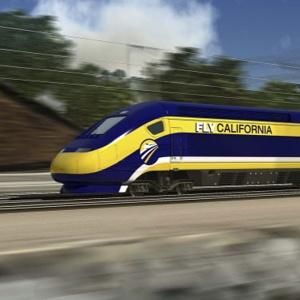Despite shake-up, bullet train project faces more bad news

California High-Speed Rail Authority CEO Brian Kelly worked over the summer to reassure anxious state lawmakers that a new management team could revive the troubled bullet-train project. He also proceeded to push out key officials overseeing contract and property decisions.
Yet the changes haven’t stopped a new wave of bad news in September for the project, which was once envisioned as a statewide network of high-speed rail but has been downsized to a 119-mile link between Bakersfield and Merced expected to cost in the range of $20 billion.
A Los Angeles Times report outlined the huge problems still facing the rail authority’s land-acquisition efforts after seven years in the Central Valley. Not only does the agency need to buy about 300 more properties to be able to build the train, the Times reported that consultants believe at least an additional 488 parcels will need to be bought to deal with complex issues related to easements on sites with infrastructure owned by Pacific Gas & Electric and other utilities as well as AT&T, railroads and irrigation districts.
This adds new doubts about the rail authority’s projection it could finish construction of the Central Valley route by 2026.
One project manager, after warning of severe delays, told the Times that “I am going to ride this train, but I am afraid it is going to be my ashes in an urn. I told my kids to take my ashes on the bullet train.”
The Times also noted that the rail authority had been forced to buy larger lots than it needed to accommodate the rail route to such an extent that it now owns hundreds of properties – including “toxic waste sites, vacant lots and rental homes” – that it must manage. The list includes at least 466 acres of cultivated agriculture fields.
San Jose area critics push for costly elevated lanes
There was also bad news for the project from Northern California. At a rail authority board meeting held in San Jose, trustees voted unanimously to approve a route connecting the San Joaquin Valley with San Jose after the Central Valley initial segment is built. Yet testimony at the hearing showed the intensity of opposition to building any new rail route that didn’t minimize disruptions to the neighborhoods and communities it traveled through.
According to a Fresno Bee report, speakers complained to the rail board that early promises that elevated rail lines would be built had given way to plans for regular, surface rail lines. But since elevated rail costs two to four times more per mile, choosing it would make project costs explode – and Gov. Gavin Newsom has already said there’s not nearly enough funding likely to be available to complete the $78 billion statewide project advocated by his predecessor, Jerry Brown.
That argument didn’t move San Jose resident Danny Garza. According to the Bee, he said that not building elevated tracks in his neighborhood was “a bait-and-switch” given past guarantees of minimal impacts. “Please don’t use our neighborhood to balance your budget,” he told the board.
San Jose Mayor Sam Liccardo told trustees that his city could drop its support for the project if the rail authority didn’t use “best practices” to “provide our community with the safety it deserves.”
The section of the proposed route in the San Joaquin Valley also drew complaints, according to the Bee. Rick Ortega, general manager of the Grassland Water and Resource Conservation Districts, said the staff report “contains no design detail on how the authority intends to mitigate impacts through the ecological area.” The Grassland Environmental Area is a 160,000-acre site mostly in Merced County that the U.S. Fish & Wildlife Service has repeatedly said must be preserved because of the crucial ecological importance of its wetlands.
Ortega also said elevated tracks were necessary – or that the rail authority should change its planned route.
Board members said the staff would consider the complaints, but offered no promises about the nature of possible mitigation efforts, according to the Bee.
Chris Reed
Chris Reed is a regular contributor to Cal Watchdog. Reed is an editorial writer for U-T San Diego. Before joining the U-T in July 2005, he was the opinion-page columns editor and wrote the featured weekly Unspin column for The Orange County Register. Reed was on the national board of the Association of Opinion Page Editors from 2003-2005. From 2000 to 2005, Reed made more than 100 appearances as a featured news analyst on Los Angeles-area National Public Radio affiliate KPCC-FM. From 1990 to 1998, Reed was an editor, metro columnist and film critic at the Inland Valley Daily Bulletin in Ontario. Reed has a political science degree from the University of Hawaii (Hilo campus), where he edited the student newspaper, the Vulcan News, his senior year. He is on Twitter: @chrisreed99.
Related Articles
Mac Taylor’s goofy happy talk triggers more toxic fallout
Dec. 4, 2012 By Chris Reed Legislative Analyst Mac Taylor’s unhinged decision to project budget surpluses in coming years in
Small biz jobs up, but not in CA
Jan. 30, 2013 By Katy Grimes While small businesses across the nation created 20,000 new jobs this month, California lost
DeMaio/Reed pension reform initiative may be pushed back to 2018 ballot
Over the weekend, two sources indicated to me that the Chuck Reed/Carl DeMaio pension reform initiative would be pulled, re-written,



